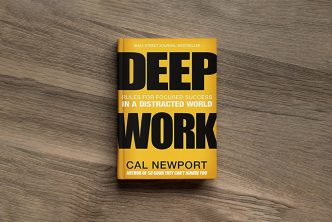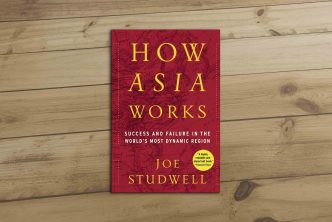By Uche Okoro and Asiegbu Charles
In this work, William Easterly critiques mainstream approach of “experts” to economic development. Easterly identifies the “experts” as the development community (economic advisors/policymakers) in the international financial institutions. Easterly challenges the thinking in this community and questions the conventional approach to development; he argues that too much emphasis is placed on approaches that aim to achieve national development. Instead, Easterly argues that prioritising personal freedom and individual rights provides a better path to poverty eradication.
Easterly makes this argument by emphasising the role of historical antecedents in development; the bottom-up nature of many solutions to socio-economic and political issues and the role of factors such as capital, technology and network which are not constrained by national boundaries.
Easterly begins by contrasting the work of economists Gunnar Myrdal and Friedrich Hayek who were awarded the Nobel Prize in 1974. While Myrdal was a strong advocate of state led-coordinated development that gave little importance to individual choices, Hayek believed in incentives and initiatives that promote individual development and growth. This book contrasts these two opposing ideologies with Easterly arguing against Myrdal’s.
National Development
Easterly attacks Myrdal’s philosophy which discounts the rights of the poor in deciding their economic future. Myrdal, he notes believed that poor people did not care about their rights; probably because they were unaware of them. Hence, solutions have to be designed by national governments to enable them to escape poverty. Easterly notes this philosophy convinces experts to approach each challenge as a blank state where standard policies can be applied to produce success. These experts believe this standardized policies imposed from the top down would lead to development. In telling the ironic tale of farmers’ ejection from their ancestral lands and the destruction of their homes by soldiers commissioned to drive a World Bank-funded initiative, Easterly shows the opposite.
Easterly argues that individual rights are overlooked in many development initiatives backed by experts in the community. He notes that “the technical experts unintentionally confer new powers and legitimacy on the state as the entity that will implement the technical solutions.” This, he argues legitimises autocracy. Easterly denounces the rise of what he calls authoritarian development/technocracy, which he defines as development driven by technical experts who advise well-intentioned autocrats. In proposing these solutions, these experts naïvely assume that as the restraints on power are loosened or even removed; that same power will remain benevolent. He notes that even benevolent autocrats soon lose their benevolence. Under this approach, the rights of the masses, e.g., the right to peaceful habitation of the Ugandan farmers are not ends of development.
Easterly argues top-down macroeconomic policies often result in short-term, unsustainable growth. Using historical examples, Easterly shows how this top-down authoritarian approach designed by experts did not yield meaningful economic development in Maoist China, cold war era Colombia and post-colonial Africa The approaches proposed by the technocrats which were tailored to suit the priorities of the sponsoring countries produced not only unsuitable top-down policies, but also led to the systemic eradication of individual rights and liberties.
Individual Rights
Easterly counters nationalist, top-down approach to development with historical evidence of bottom-up individual-centric approaches to development. Focusing on New York City in the 17th century, Easterly highlights that efforts and incentives led to technological innovations that accelerated economic development. He also argues that these initiatives also decreased community mortality, primarily as public demand for better public services in the health sector increased. Individualism is responsible for transforming the quality-of-life indicators (which were the same as those in the Congo) into one of the best globally by the start of the 20th century.
Easterly notes that policies focused on nations rather than on individuals made people poorer. Using Zambia and Bolivia as examples, he explains how failed policies and confined national borders further impoverish the masses. Zambians he registers have seen per capita income decline over the past half-century as the copper industry collapsed without the option of out-migration. He contrasts this with the situations in Ireland (during the potato famine) and in West Virginia (when the coal industry collapsed). Out-migration to the Unites States and other states allowed wages in Ireland and West Virginia to remain the same, preventing the local populace from getting poorer. When opportunities are scarce, individuals must be free to migrate to someplace, to be more productive and command better wages. This ties into Easterly’s overarching position that poverty stems not from a shortage of expertise, but rather a lack of rights.
Easterly advances that measures of growth are not dependent on policies, regime changes or countries. Instead, he notes that growth is a long-term action dependent on factors such as remittances, innovation, technology use. These factors, coupled with individual rights and effective regulatory systems, Easterly propounds, would be a better approach to economic growth.
Conclusion
Easterly’s arguments are very compelling and evoke a self-assessment of the reader’s economic development ideologies. He adequately denotes how the “tyranny of experts” came to exist and various ways it has failed. However, some of his ideas – such as the role of migration in reducing poverty – while theoretically sound, are not feasible under current global political systems.
With so much evidence of the failures of the authoritarian top-down approach to development, one can’t help but agree with Easterly’s arguments against them. However, Easterly presents an ‘either or’ argument for economic development, where the solution to present developmental challenges is individualism. He fails to account for instances where bottom-up approaches have failed and don’t leave much room for compromise. In reality, we find out solutions are often not black or white, they exists in shades of gery.
The pertinent question becomes, did Easterly do enough to convince the reader that individualism is the answer? You’d have to read to find out for yourself.







